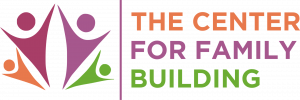Controversial? Perhaps, but also good advice. Part 1
Who needs to know the details of your family building journey?
This is a really important question. Many people begin their family building journeys with hope and excitement. This enthusiasm may be communicated to family and friends because, it’s great news. Right? But then treatment may become stressful or disappointing, and then what?
Don’t we need people to lean on?
Once you’re in treatment, your family and friends may know the basics or every detail. But what if things get more difficult or more disappointing? Sometimes people knowing your story can feel reassuring because people who care for you can be a great sounding board, a shoulder to cry on or a person to vent to.
Now comes the rub. At this point, these people could already be knee deep in the details of your life. This could be fine, or maybe not. Here are a few scenarios to ponder:
- What if you don’t want to report every disappointment anymore, but aunt Millie keeps calling to see how each procedure went?
- What if you are using donor conception, but then decide you don’t want to share every detail about your donor, or are concerned that aunt Millie will tell her friends at her book club, and people will forever greet you and your future child with strange looks?
- What if you are using a donor to conceive and your parents are proud of their long line of Greek relatives and are now concerned there will be no one to carry on the family line?
- What if you are a single or LGBTQIA+ parent to be and everyone knows you are using a donor? You decide to share information about your donor early on and then people can’t stop asking you questions and make upsetting remarks like; “who is the real parent” or refer to the donor as the mom or the dad?
- What if you are (understandably) tired, and just want to enjoy being parents. You want to have fun at music class and ballet recitals? Your family building stressors are behind you and you’re overdue for some enjoyment. Yet the questions about the donor or your treatment does not end?
We think ahead in so many areas of our lives. We think ahead about our career, where we want to live and the type of person we want to marry. Yet when it takes effort to build a family, it can feel so consuming that it may be difficult to stop to consider how the choices that are made at each step of your journey can affect you later.
Families are made in many ways. Every day, I see people building their families with donor conception, with their friends as their donors and creating co-parenting arrangements.
One day, the two-person, heterosexual couple who have their children at home may not be the norm. Until then, there will be people who will react in ways that are not ideal. Even well-meaning loved ones can say hurtful things.
Here are some questions to ask yourself. What do I want my day-to-day life to look like when my family building journey is over? Am I the sort of person who likes telling the world everything or am I more private? Who are the people closest to me? Are they “old fashioned” or do they have cultural or religious backgrounds that may affect how they see my family? Do I feel that my child’s information is theirs to share or not to share? I will address more about the children in my next newsletter but for now, ponder these questions and consider the long-term implications for the decisions you are making.
It is important to be true to yourself and be fully open if that is what suits you and your family but it is equally important to care for yourselves, honor your privacy and set limits with the people you need to set limits with so you can spend more time enjoying parenthood and less time fending off unwanted questions.
If you decide you would like to discuss this and your personal journey, feel free to reach out to us any time.
We are here to make your journey easier.
Warmly,
Lisa and the Center for Family Building Team
